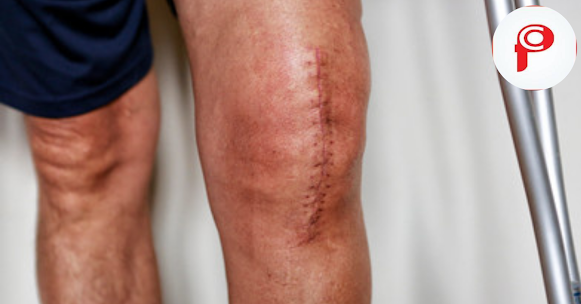Knee Replacement: What to Expect Before, During, and After Surgery
Knee pain can significantly impact your quality of life, making everyday activities a challenge. When conservative treatments fail to provide relief, a knee replacement surgery may be recommended by your orthopedic surgeon.
Before Surgery
- Consultation and Preparation: The journey begins with a consultation with your orthopedic surgeon. They will assess your knee's condition through physical examinations and imaging tests. Together, you'll discuss the surgery, its risks, and benefits.
- Medical Evaluation: Prior to surgery, a comprehensive medical evaluation is crucial. Your surgeon will review your medical history, medications, and any underlying conditions to ensure you are fit for the procedure.
- Lifestyle Adjustments: You may need to make certain lifestyle adjustments, such as quitting smoking, losing excess weight, or discontinuing blood-thinning medications, as advised by your surgeon.
While the thought of surgery can be daunting, understanding what to expect before, during, and after the procedure with best knee replacement surgeon can help alleviate anxiety and pave the way for a smoother recovery.
During Surgery
- Anesthesia: Knee replacement surgery is typically performed under general or regional anesthesia. Your anesthesiologist will determine the best option for you based on your health and the surgeon's recommendations.
- Procedure: During the surgery, the damaged knee joint is replaced with an artificial joint made of metal and plastic components. The surgeon will remove damaged cartilage and bone, ensuring proper alignment and stability.
- Duration: Knee replacement surgery usually takes a few hours, after which you'll be moved to a recovery area.
After Surgery
- Hospital Stay: Most patients spend a few days in the hospital to monitor their progress and manage pain. Physical therapists will help you start gentle exercises to regain mobility.
- Pain Management: Effective pain management is crucial for a comfortable recovery. Your medical team will provide medications and techniques to control pain and reduce inflammation.
- Rehabilitation: Rehabilitation is a key component of knee replacement recovery. Physical therapy plays a vital role in regaining strength, flexibility, and function in your knee.
- Home Care: Upon discharge, you'll receive instructions on wound care, medications, and exercises to continue at home. Make necessary adjustments to your living space to ensure a safe and comfortable environment.
- Long-term Recovery: Full recovery can take several months, but you'll gradually notice improvements in your knee function. Regular follow-up appointments with your surgeon will help track your progress.
Knee replacement surgery can be a life-changing procedure, offering relief from chronic knee pain and improving your overall quality of life. By knowing what to expect before, during, and after surgery and consult with knee replacement surgeon in Indore , you can approach the procedure with confidence and prepare for a successful recovery.
Remember to follow your surgeon's guidance, commit to your rehabilitation program, and be patient with your body as it heals. With dedication and support from your medical team, you'll be well on your way to enjoying a pain-free, active life once again.



Comments
Post a Comment